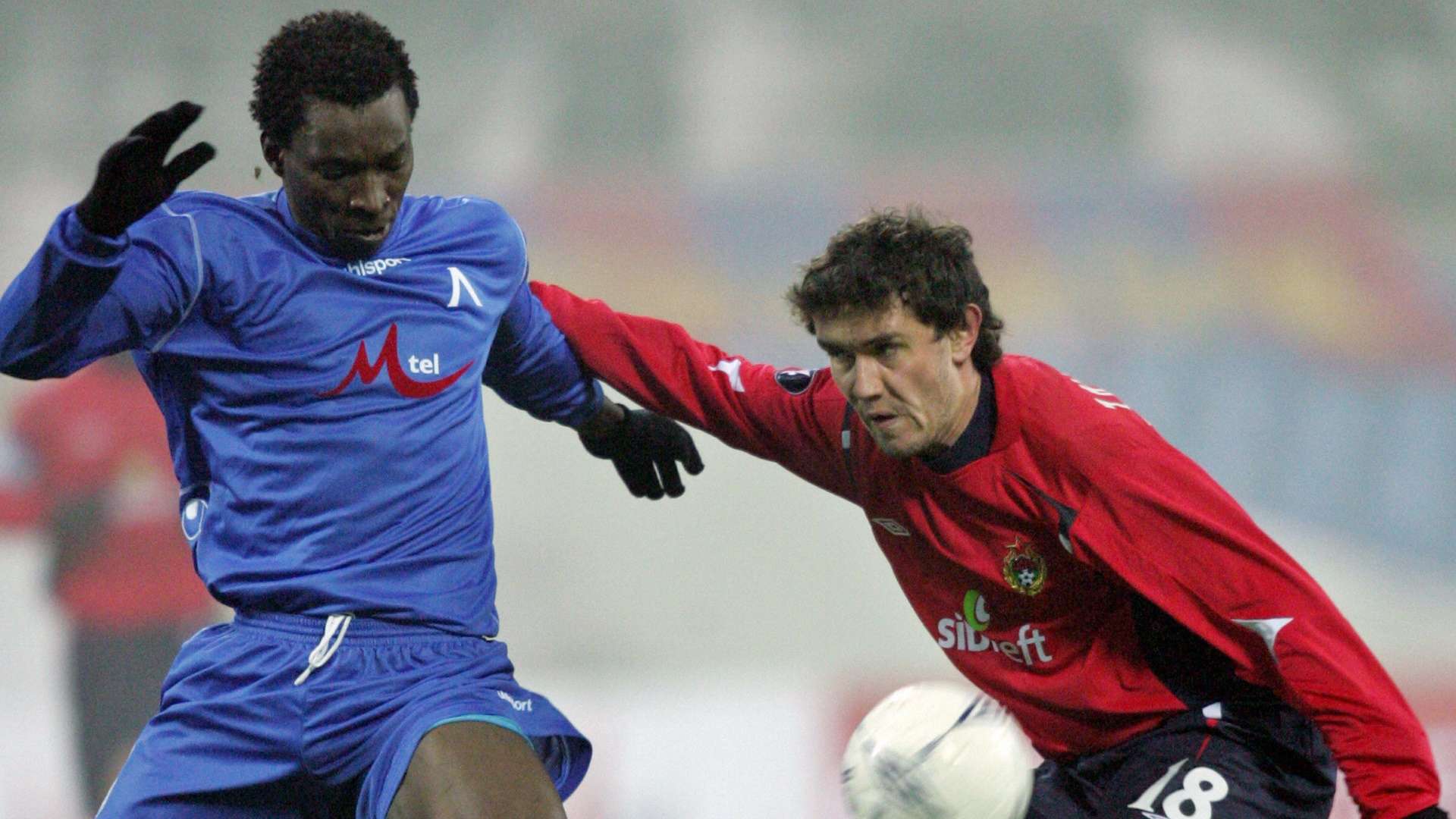On the morning of June 8 the football world woke up to a rather bizarre tale surrounding one of the game’s most exciting young talents.
A statement from Bundesliga side VfB Stuttgart revealed that 21-year-old Silas Wamangituka, whose searing pace and sterling contributions (11 goals and five assists in 25 league matches) had helped the club to a ninth-place finish in the German top flight in its first season up from the second tier, was in fact 22-year-old Silas Katompa Mvumpa.
The story, a sordid affair involving a duplicitous agent and forgery, is one that seems to confirm a L’Equipe investigation from 2019 .
The French publication uncovered evidence of attempts by Congolese club president to extort the player and former club Paris FC on account of what he termed a 'fraudulent transfer' from his club 'under the name… Wamangituka'.
Katompa Mvumpa’s side of the story fingers his former representative – a Congolese lawyer who brought him to Europe for the first time in 2017 – as being responsible for the subterfuge.
Next Match
It is alleged that this individual surreptitiously altered the youngster’s identification sometime in late 2017, ostensibly to keep the player under his thumb, and helped himself to a cut of his wages under threat of ruin.
 Getty
Getty
Only following his move to Stuttgart and the forming of a “relationship of trust' with the Swabian club did Katompa Mvumpa finally muster the courage to not only reveal the truth, but also sever ties with the agent and wrest control of his career and future back.
Tremendous credit is due Stuttgart for their handling of a delicate situation, and for providing a frightened player a safe space and unerring support through a difficult time.
That said, this is far from a freak set of circumstances; it is, sadly, an all too familiar narrative where African players are concerned.
The vast economic disparities between African and European football, as well as the global appeal of the latter, means that much of player development in Africa is export-facing. Young, optimistic players on the continent dream of making the move across the Mediterranean, and year after year their ambition is taken advantage of by unscrupulous agents.
The methods vary. A lot of the time, however, youngsters are actively encouraged to falsify important personal details, such as names and dates of birth. In fact, so rampant is this requirement (and the rot it has caused) that it has come to be regarded as a matter of course, giving rise to the concept of 'football age': in order to meet the specifications of visiting scouts, young players are advised to take years off the clock.
 Stuart Franklin/Getty Images
Stuart Franklin/Getty Images
In certain cases, multiple passports are required to perpetuate this falsehood.
As a result, a clever ruse that is often employed is the deliberate misspelling of a player’s name, which provides plausible deniability—this is then reported after the fact as a clerical error of some sort. Complete falsification of the name – as in Katompa Mvumpa’s case – is rarer but not unheard of: the curious case of former Nigeria international Richard Eromoigbe serves as an example.
Ahead of the 2001 Fifa Under-17 World Cup, midfielder John Akhimien had a problem.
An investigation found that he had attended trials as a 20-year-old (per his international passport) in Poland, a not insignificant detail that stood in the way of his inclusion in Nigeria’s squad to Trinidad and Tobago. The solution was amusing by its simplicity. Akhimien simply walked into the Passport Office and emerged with a whole new identity: not only was he now within the age limit, but he also had become Richard Eromoigbe.
Improbably, when the scheme was uncovered (conveniently after Nigeria had finished second at the Under-17 World Cup), Akhimien claimed he was within his rights, and that he had assumed his new identity to honour the memory of his dead father of the same name, and not as a means to beat the system.
“The decision to change my name is my own,” he said at the time. “I don't need permission from anybody apart from members of my family. I changed my name from John Akhimen to Richard Eromoigbe so that my late father's name could be immortalised.”
 MLADEN ANTONOV/AFP via Getty Images
MLADEN ANTONOV/AFP via Getty Images
Eromoigbe would, of course, go on to represent Nigeria at senior international level (earning three caps) and play in the Champions League with Levski Sofia. Now aged 36, the long-throw exponent has been retired from football since 2012.
In all, it is important to emphasize these players are, at the heart of it, the victims.
They are victims of a society where the absence of a development pathway, rampant unchecked corruption and poverty, a lack of imagination in leadership positions, poor access to quality education, floundering to non-existent league structures, and inadequate infrastructure all combine in a poisonous cocktail that sparks desperation.
Football, more than a simple career pursuit, is considered a way out; for that escape, they will do anything, even entrust their futures to wolves in sheep’s clothing who leave a trail of false promises for them to follow.
Lacking the literacy and world-weariness to navigate a new environment, they necessarily place themselves in the hands of their representatives completely, with the sort of outcomes that Katompa Mvumpa had to endure for close to four years.
 Shaun Botterill/Getty Images
Shaun Botterill/Getty Images
Nigerian midfielder Sunday Stephen, who was left stranded in Europe as a teenager before good fortune saw him earn a deal with La Liga club Valencia, was unequivocal in his advice to young, vulnerable African players seeking to forge a career in Europe.
“My advice to young players would be to take one step at the time," he told Al Jazeera in 2015, "stay focused and not allow any agent distract them from what they are doing.
“One needs to give an agent two years [before trusting him]. If he really cares about you and wants the best for you and your career, he will stick with you and press clubs until he finds the right one.”
Sound advice, but even that would only be addressing the problem superficially. The roots run a lot deeper.






